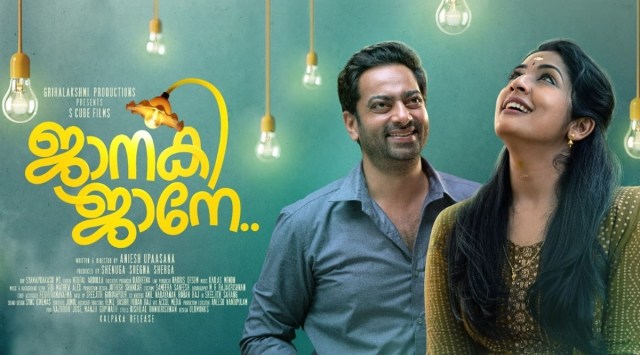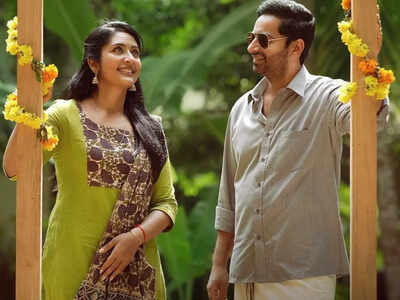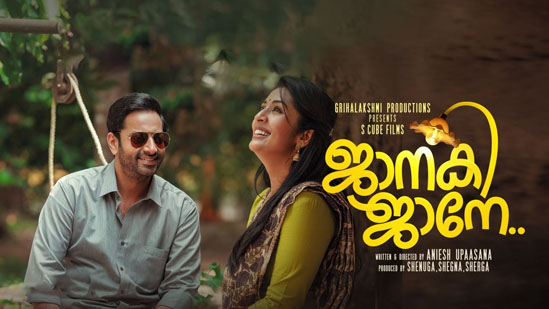Janaki Jaane offers commendable performances and a nostalgic touch in its production but falls short in delivering a fresh perspective on its themes, making it a watchable yet unremarkable film.

Synopsis
Janaki Jaane explores the life of its titular character, Janaki, who is plagued by two crippling fears: the darkness and the feeling of being alone, either in open or confined spaces. Janaki’s constant need for companionship has her leaning on her mother and friends for support. Unni Mukundan (played by Saiju Kurup) enters her life when he aids her during one of her anxiety attacks and eventually falls in love with her. The two get married, but their blissful life takes an unexpected turn as they are forced to confront Janaki’s fears. Amidst a political election campaign, Janaki becomes the unwitting victim of a political scheme devised by a rival party to tarnish an upcoming politician’s image. With the help of her husband and friends, Janaki realizes that she must conquer her fears to not only reclaim her own life but also protect others from harm.

Review
Janaki Jaane manages to shine a light on the opportunistic nature of politicians and the intrusive tendencies of media and social channels, though it is not without its shortcomings. The film’s strength lies in the compelling performances of Navya Nair and Saiju Kurup, who breathe life into their characters and elevate an otherwise simplistic storyline. While the plot is engaging, the storytelling lacks depth, leaving much to be desired.
Director Aneesh Upasana, who also co-wrote the screenplay alongside Anil Narayanan and Rohan Raj, is clearly aiming to infuse a nostalgic 90s vibe into the film. This choice gives the movie a unique feel, transporting the audience to a different era. However, this nostalgic approach might not resonate with all viewers and can sometimes make the film feel somewhat slow and disconnected from contemporary sensibilities.

The film’s production values are worth noting, with well-executed cinematography and a convincing portrayal of Janaki’s world of anxiety. The use of light and shadow effectively conveys her fear of darkness, while the production team successfully captures the essence of a small town. Despite its shortcomings in storytelling, the production aspects of Janaki Jaane are well-crafted and add to the overall viewing experience.
The film’s exploration of Janaki’s fears is poignant, drawing the audience into her world, where she grapples with the debilitating anxiety that comes with her condition. The budding romance between Janaki and Unni Mukundan is endearing, and the chemistry between Navya Nair and Saiju Kurup is palpable. However, the film’s portrayal of Janaki’s struggles with her fears feels somewhat rushed and could have benefited from more nuanced character development.

The narrative takes an unexpected turn when Janaki becomes entangled in a political conspiracy during an election campaign. This subplot serves as a vehicle for the film’s social commentary, highlighting the unscrupulous nature of politicians and media. Unfortunately, this message is not delivered with subtlety and feels somewhat clichéd, given the oversaturation of similar themes in cinema.
Janaki Jaane’s pacing is somewhat sluggish, and its 90s old-world feel may not resonate with all viewers. Despite its watchable nature, the film ultimately fails to offer anything truly distinctive or innovative. The familiar tale of overcoming fears and the recurring theme of corrupt politics and media do not bring any fresh insights to the table.
Verdict
In Janaki Jaane, the commendable performances of Navya Nair and Saiju Kurup breathe life into a rather simplistic storyline. While the film provides a glimpse into the life of a woman battling her fears and offers a commentary on the opportunistic nature of politicians and media, it fails to bring a fresh perspective to these themes. It’s a watchable movie, but one that doesn’t offer anything particularly special.




